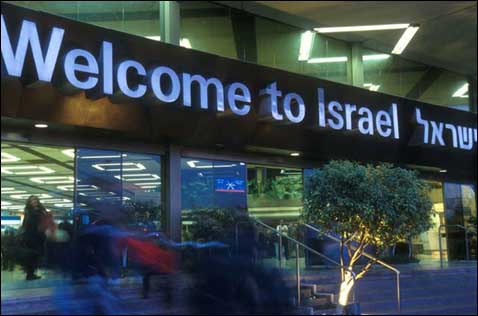On December 23rd, 2009, Harvard Law student Hebah M. Ismail’s ’06 landed at Tel Aviv’s Ben Gurion Airport with the intention of joining Clinical Instructor and Global Advocacy Fellow Ahmad Amara, as well as another fellow student, for research on land disputes between the Israeli government and Bedouin communities in the Negev desert.
At airport security, Ismail was interrogated for seven hours. Despite a letter from the Human Rights Program of Harvard Law School providing details on her research in Israel, security officials remained suspicious. They began looking through Ismail’s laptop, which included hundreds of articles relating to her research. One of the articles mentioned that the state of Israel was situated on land that previously belonged to Palestinians. In response to this discovery, officials demanded to see Ismail’s email. She refused to open up her email, and was thus denied entry into Israel. Keeping her detained overnight, they sent Ismail back to the United States the next day. Only later did Ismail find out that she had actually passed security clearances. It was immigration that denied her entry. (For a full version of the story, go here.)
Why was Hebah prevented from entering Israel? She had passed security clearance and she had a letter from the Human Rights Program of Harvard Law School providing details about her research. But she was a Muslim. Airport security forces at Tel Aviv’s Ben Gurion Airport routinely use ethnic and religious profiling as an index of suspicion; if you look Arab, if you have an Arabic name, or if you wear Muslim clothing, you immediately become suspect. Hebah’s story is just one of countless others that are becoming increasingly commonplace in Israel today, and that we simply never hear about. Every day, men and women are banned from Israel solely because of their religion, the color of their skin, and their veils and skullcaps. And Ben Gurion Airport is only one part of a larger program of institutionalized discriminiation. Take, for example, the story of journalist Mohammed Omer, joint winner of the 2008 Martha Gellhorn Prize for Journalism, who was violently beaten at the Allenby border crossing between Jordan and the West Bank. Or how about the quasi-comical account of this young American woman whose MacBook was shot three times at the Aqaba border crossing between Israel and Jordan.
What angers me most has been Harvard’s response to Ismail’s case. Not only has one of Harvard’s students been prevented entry into a country, but Amara’s land rights project cannot be completed. Yet Harvard’s Human Rights Program has remained completely silent. No doubt fearing reprisals from various sectors of the Harvard community, not one on-campus group has issued a public statement. Harvard’s passivity in the face of such discriminatory policies is both shameful and disturbing. How can Harvard call itself an institution of academic integrity when it implicitly consents to discriminatory policies that expel one of its students from a country and prevent her from completing her research?
Israeli apologists have desperately responded to this case by justifying the behavior of the Israeli security apparatus. This blogger, for example, provides three arguments. First, that Ismail’s lack of cooperation deserves refusal of entry; second, that Bedouin land rights is a sensitive issue; and third, that those researching human rights abuses in countries such as Saudi Arabia, Sudan, and Iran, would be expelled without question.
In response, I have to say this. First, Ismail was not given the choice to cooperate. Yes, it is true that she refused to allow personnel to view her emails. But what was it that made Israeli officials suspicious of Ismail in the first place, causing them to demand her emails? One article on her computer, out of hundreds, that described Israel as a state on land previously possessed by Palestinians. Clearly, Israeli officials had another idea in mind, one in which Ismail could not cooperate no matter how innocuous her standing. Second, if Israel is the free democratic state it claims to be, then why is research on Bedouin land rights a de facto crime? If sensitive issues are ones that cannot be discussed, then you have just taken a step into totalitarianism. Third, do you really want to equate Israel with Saudi Arabic, Sudan, and Iran? By all means, go ahead, but if you take that road, then you accept that Israel shares enough similarities in human rights abuses that it merits comparison with them.
Israel does face unique threats that do justify elevated security precautions. But when these precautions become tools of racism and prejudice, then Israel loses its credibility. Security cannot be used as a pretext for discrimination.
Will Ismail ever be allowed back into Israel? Probably not, but the least we can do to provide some type of justice is to talk about it. I hope this post is a step forward along that path, as naive a path as it may seem.
